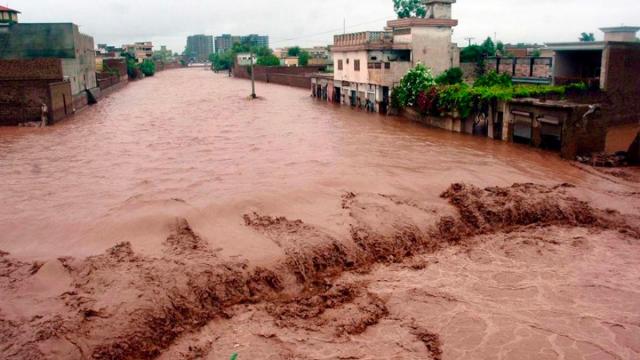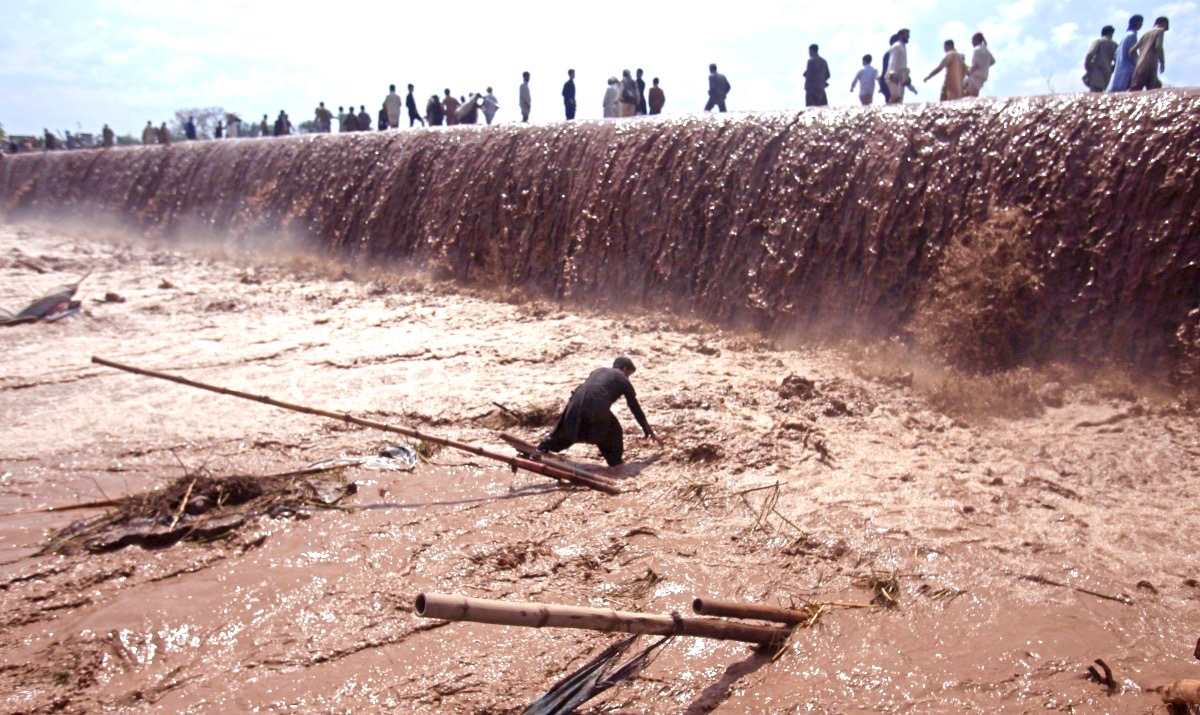
PESHAWAR, Pakistan – In Chitral district of Khyber Paktunkhwa, in the north of Pakistan, at least 29 people were killed and 26 others went missing during sudden heavy rainfall and floods that began earlier this month, which some government officials considered a cloudburst. But the phenomenal increase here in flash floods have intensified with time, because not only are glaciers melting, but the soil is also eroding. The increase in weather anomalies, according to experts, is due to global warming.
“The flood is already interfering with our people’s lives and local economies, as well as degrading local infrastructure,” Syed Mustaq Ali Shah, director of the Regional Meteorological Center in Peshawar, told Occupy.com. “Not only is infrastructure shuttered down, but climate change has now [had] real effects on people’s lives.”
The tragedy of Chitral was not the first this year, as storm and rains have wreaked havoc killing hundreds of people in different parts of the country. In March, at least 141 people died and 133 others sustained injuries due to flooding, mostly in northern parts of the country. In April, untimely rains followed by floods and landslides took 127 lives in Pakistani-administered Kashmir and Gilgit-Baltistan, while 102 were injured. And as recently as last month, fresh storms struck across the country, killing more than seven. The tragedies, officials say, were unanticipated and unprecedented.
In those same northern areas, especially in Chitral, around 300,000 people were affected by the increase in flash floods last year, according to regional government.
The Data Is In
According to the Pakistan Space and Upper Atmosphere Research Commission (SUPARCO), Landsat images of Batura Glacier between 1992 and 2000 revealed a 17 square kilometer decrease in the glacier. A major decrease has also been witnessed in Biafo Glacier. Pakistan’s glaciers, which spread over an area of about 17,000 Km², serve as reservoirs of fresh water that feed the country's rivers. Glacier depletion, especially recent melting due to global warming, can affect agriculture, drinking water supplies, hydro-electric power and ecological habitats.
According to the Pakistan Meteorological Department, glaciers have huge potential to fulfill the country's water needs, with small water reservoirs at every level of the outflowing streams. “The climatic changes we found are small but robust,” said Shah. “The latest floods and the extreme weather that are expected in the future bear the hallmark of the climate changes in our region.”
Shah added that since 2000, Pakistan has been experiencing rapid changes in climate – between sudden and extreme rains, cold spells, heat waves and glaciers melts, affecting every aspect of people's lives. However, research in the agriculture sector show that average people in the country are not so aware of the causes of these changes.
A 20 percent decrease in rainfall in the southern districts of Khyber Pakhtunkhwa province has also been recorded since 2010, with sudden strong rains triggering food insecurity. Scientists stress that proper crop management, small reservoirs for water management and tree planting to prevent the future cascading impacts on the soil are potential ways to mitigate the crisis.
“Climate change is a severe threat Pakistan has been faced with,” said Afsar Khan, deputy director of the Climate Change Cell in the government of Khyber Pakhtunkhwa, who has devised a "Climate Change Policy" for the province. "Flooding has become routine. Our people may in the future be exposed to risks of hunger, drought and debilitating diseases."
Despite such serious threats, the Climate Change Cell experienced three years of delay in formulating a policy framework, and even today the experts are not sure whether or not the proposals will be implemented. According to Khan, Pakistan is one of the most vulnerable countries with increasing variability of untimely rain, excessive water and heat-stressed conditions, with low agricultural productive and cyclones.
The Cell's policy framework, devised after two years of work, aims to reduce the impacts of climate changes through adaptation and mitigation, although the country's Environment Protection Agency still has no solid data about the melting of glaciers. According to Khan, Pakistan will face longer and more severe, hot summers as well as milder winters, unexpected rainfalls and glacial melting in the northern mountain ranges. A new climate change policy was introduced late last month, but government officials and environmentalists are worried about funds and its implementation.
According to experts, the country's Early Warning System (EWS) is the first line of defense against natural disasters, but the whole country, and in particular Khyber Pakhtunkhwa, is lacking any modern system. The government allocated $700 million to install EWS throughout the country. However, those funds still have not been released; instead, the government's main function has been to declare the district sensitive, setting up control rooms and distributing tents and blankets.
Asjad Imtiaz Ali, the chief engineering adviser and chairman of Pakistan's Federal Flood Commission, said that “the summer monsoon rainfall is likely to be 10 to 20 percent more than average rainfall expected over Punjab, Khyber Pakhtunkhwa, Sindh and Northeastern Balochistan.” The flood commission says that some extreme rainfall events are likely to occur in the catchment areas of major rivers and other parts of the country, which may cause floods.
“There is a high probability of heavy downpour which may generate flash flooding," Ali said. In addition, strong monsoon currents coupled with high temperatures may trigger glacial lake outburst floods, landslides and flash floods in high northern areas of the country.
“The fact is that we haven’t learned anything from history and even [to] this day we are not ready to cope with a minor disaster,” said a senior official with the country's Environmental Protection Agency, who wished to remain unnamed. He warned that climate changes together with a lack of political will – and a lack of awareness among everyday people – is taking a toll on the country's poor infrastructure in the form of human lives.
3 WAYS TO SHOW YOUR SUPPORT
- Log in to post comments
















